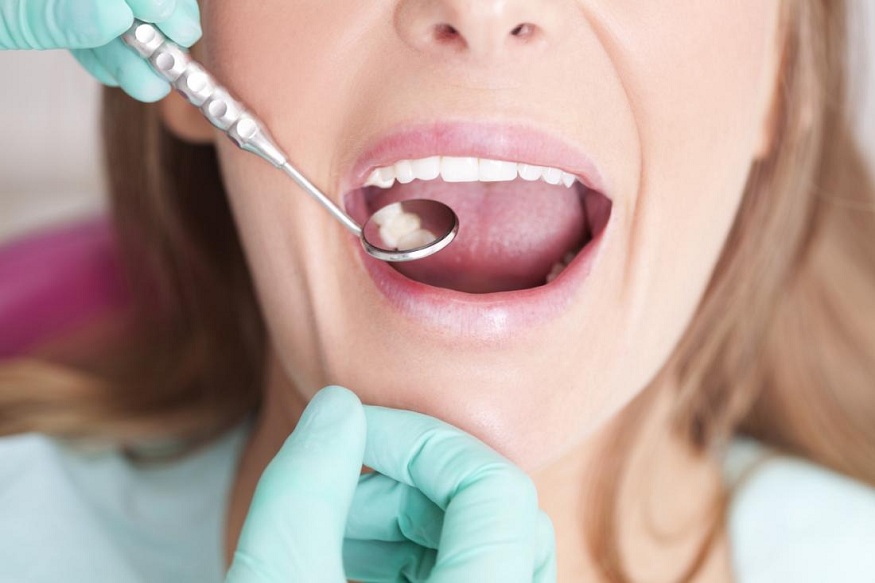Without them, good food doesn’t taste the same, your smile doesn’t have the same sparkle, and your voice doesn’t echo the same. Yet we neglect them. To the point that bacteria migrate dangerously from our mouth to the rest of our body.
In 2015, in the Pyrénées-Orientales, a 550,000-year-old human tooth was found! A major discovery since it is the oldest human remains unearthed in France. Even stronger, in February, the oldest DNA ever sequenced in the world was identified on a mammoth tooth . Its age is canonical: 1.65 million years! So, if there was only one thing left of our presence on Earth, it would be a tooth.
Paradoxically, only 41% of Europeans over the age of 15 have kept all their natural teeth. In France, this rate drops to 34%. The teeth are therefore strong and fragile at the same time. Indeed, if the enamel represents the hardest substance of the human body, it is incapable of regenerating itself or even of healing in the event of an injury. Suffice to say that taking care of our teeth is essential. Henri Ouazana, dental surgeon in Paris.
To each tooth its role
Thirty-two teeth , just to grind food, isn’t that exaggerated? Well no ! First of all, eating requires several features. The incisors cut; the canines shred; premolars and molars crush and grind. In mastication, each has its own job. “If the food is not well crushed, it does not release all its flavor,” says Dr. Christophe Lequart, spokesperson for the French Union for Oral Health (UFSBD). Second, they play a central role in language and pronunciation. The mouth acts as a sounding board. Certain consonants (d, t and n) are also called dentals.
The power of bacteria
This very elaborate set evolves in a complex environment. Our teeth are bathed in the oral microbiota, made up of around 700 bacterial species . While some of them are protective, others are responsible for dental plaque, cavities and periodontitis, these diseases of infectious origin that attack the gums and the bone. It’s all about the balance between good and bad bacteria. According to a Dutch study published in 2014 in the journal Microbiome , we would exchange no less than 80 million bacteria during a kiss.ten seconds. Ideal, according to its authors, to allow us to build resistance to microbes. Provided that your partner has good oral hygiene!
Don’t only care about your mouth
Healthy teeth are not just about hygiene. “Healthy teeth are food my dear Watson”, jokes the UFSBD in a video published on the occasion of World Oral Health Day 2021. Regarding sweets , the message has passed, in any case : everyone is aware that they promote cavities. “Bakers and pastry chefs who permanently inhale sugar also have more cavities than average,” says Dr. Caroline Fouque, secretary general of the French Society of Periodontology and Oral Implantology (SFPIO).
Citrus fruits, tomatoes or vinegar… These foods attack us!
But this refrain that some have heard all their childhood is reductive. First of all, 70% of the sugars we consume today are added and hidden . A bowl of crisps can contain up to five pieces. Likewise, acidic foods should be eaten in moderation. A 2018 analysis in the British Dental Journal listed them: citrus fruits, tomatoes, peppers, vinegar, pickles, drinks containing fruit flavors and soft drinks attack enamel and dentin. Unless they are ingested in the middle of a meal, therefore mixed with foods with a neutral pH. “Nibbling is to be avoided because, during split food intake, saliva does not have time to play its buffer role”, underlines Christophe Lequart.
Alcohol is also problematic because it decreases salivary flow, thus increasing the risk of cavities. The same applies to tobacco, which causes other deleterious effects. “It has a vasoconstrictor effect,” says the general secretary of the SFPIO. As the diameter of the vessels is reduced, the gums are less vascularized and more sensitive to tartar. Smokers’ gums tend to bleed less. However, bleeding is a warning signal. Stress is also in the dock. And for good reason: in the event of anxiety, our immune system is weakened and it therefore fights the bacteria of our oral microbiota less effectively.
Finally, we are not all equal in terms of dental pathologies. “The genetic component is indisputable. The quality of the enamel and the tendency to produce tartar vary a lot from one individual to another but it should not be said too much, blows Dr Christophe Lequart, it is too easy an excuse to neglect all the others risk factors. »



